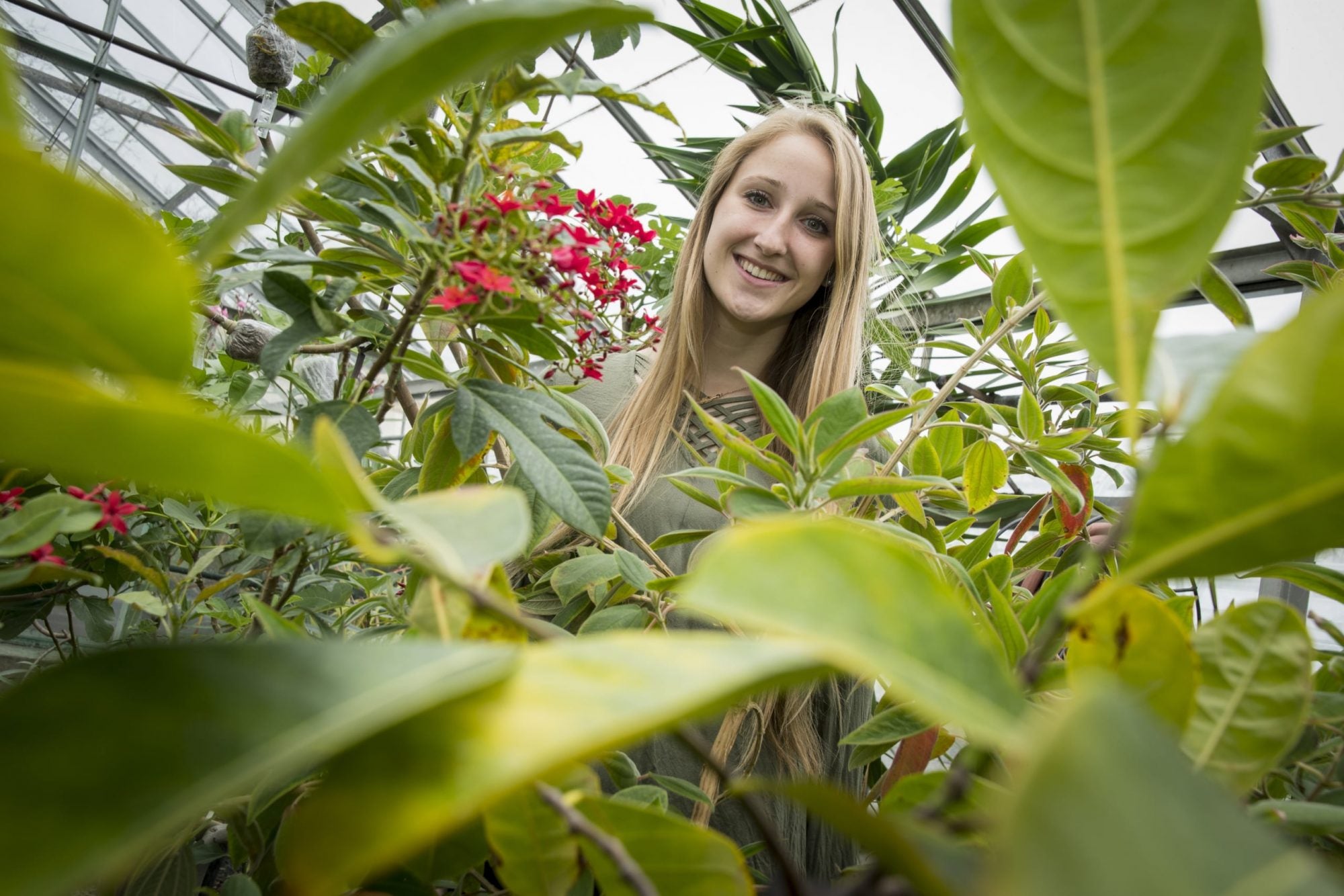
Becky Gumbrewicz ’19
This is how you do it.
At the University of Rhode Island, moving toward a sustainable future is large-scale, big-thinking, community effort. URI offers more than 30 undergraduate and programs for students interested in sustainability, including specific majors and minors in sustainability and sustainable agriculture and food systems, fellowships, and internships. Additionally, student groups and clubs such as Slow Food URI, the URI Wildlife Society, and URI Student Action for Sustainability provide opportunities for education and activism concerning fair trade and clean food, humane interaction with wildlife, and environmental issues.
So, how do you work to reduce your carbon footprint? Student Action for Sustainability’s Kaylynn Polley ’21, environmental science and wildlife and conservation biology major and vice president of the group, and Becky Gumbrewicz ’19, environmental science and management major and a Coastal and Environmental Fellow, shared what’s happening at URI as well as what everyone can do to make a difference today.
What is the URI community good at in terms of sustainability?
Our new buildings are LEED certified. We’ve started composting pre-consumer food waste, and a carpooling/HOV parking permit is in the works.
What does the URI community need to work on in terms of sustainability?
Being mindful of the waste generated by the convenience of plastic cups and utensils. Separating and properly disposing of recycling, having more plant-based options in the dining halls to cut down on animal products, and reducing Styrofoam and single-use plastics consumption makes a difference. Providing access to compost bins, minimizing food/packaging waste, and emphasizing recycling in every building are a few things we can do to move forward.
What could a person do today to act in a more environmentally responsible manner?
Quit using plastic straws. Eliminate or reduce consumption of animal products. Purchase reusable products—water bottles, coffee mugs, utensils kits, metal straws, reusable bags— and travel with them! Stop buying throwaway fashions (32 billion garments are created for the US market every year, and 64 percent end up in landfills). Have a clothing swap with friends. Accept hand-me-downs. Look for sustainable and biodegradable alternatives to single-use products. Learn about environmental issues and write letters to your representatives!
What’s one thing you would like to see in terms of change on campus?
It would be great to see the URI administration creating policies to limit the consumption of single-use items, explicitly, ban plastic bags/styrofoam/eliminate from the Ram’s Den.
What items would you like to see eliminated on campus?
All single-use plastic. Sell reusable water bottles and Brita filters instead of packs of water bottles in the convenience stores.
Do little changes make a difference when it comes to sustainability?
If millions of people made the same small decisions, huge changes could happen. However, at the same time, large corporations have the most significant impact, and consumer pressure is important to create any change.
How do people react to your efforts at being more environmentally conscious?
People are so attached to things. They think they need them, but once you get rid of stuff you don’t need, maybe you feel less overwhelmed, less weighted down. Do what you think is right and, hopefully, people will want to model that.


